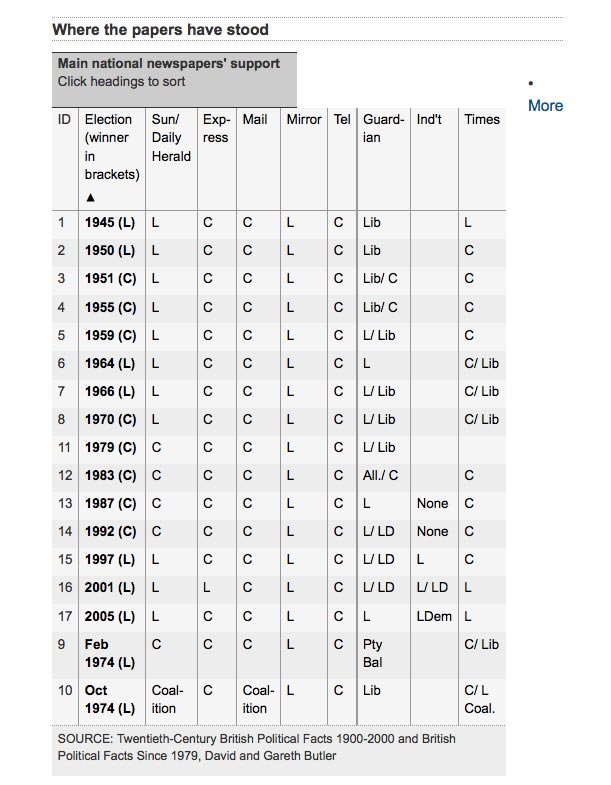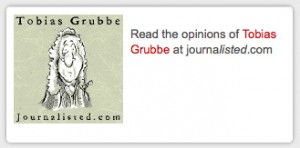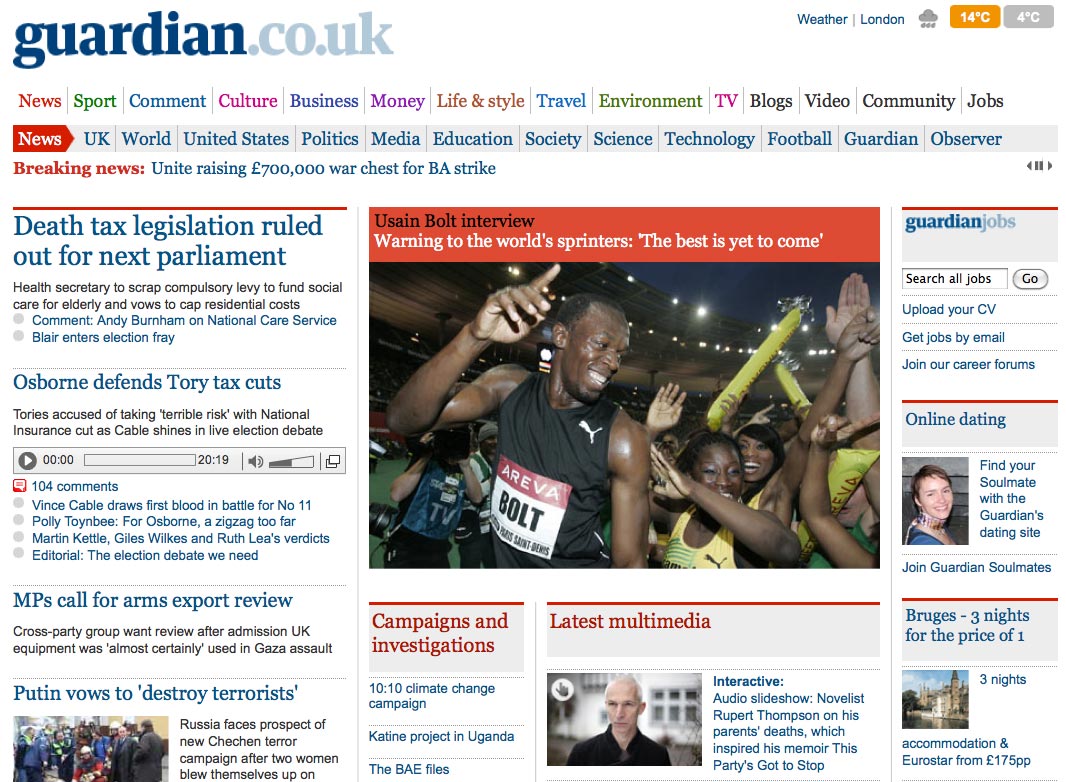The venerable old day of leg-pulling and pranking is upon us again, and British news institutions are doing their bit for the fun. Some better than others, it must be said. Here is a short round-up of some headline hilarity from the web.
The Guardian went big and bold with a mock-election campaign designed to show the rough and ready side of our beloved PM:
Brown aides had worried that his reputation for volatility might torpedo Labour’s hopes of re-election, but recent internal polls suggest that, on the contrary, stories of Brown’s testosterone-fuelled eruptions have been almost entirely responsible for a recent recovery in the party’s popularity.

While the traditionally rowdy readers of the Guardian were treated to this new bar-room-brawling Brown, the refined readers of the National Union of Journalist’s site woke up to the news that the bruiser and the posh boy, along with that other one Clegg, were all joining the NUJ executive council as part of a new “affinity programme”.
Through our new affinity scheme NUJ members will now be able to join the Labour, Conservative and Liberal Democratic parties at a reduced rate. In fact, from now on they can also get membership of all three parties for the price of one, which we believe will appeal particularly to our members at the Guardian and elsewhere.
Harmony was prevailing elsewhere too on The Register’s site, with the equally unlikely news that highly improbable bedfellows Associated Newspapers and the Guardian Media Group would join forces to share a common editorial facility.
Using the latest technology, a single team will produce stories for both groups flagship titles, the Daily Mail and the Guardian, in a process that will be largely automated.
The Independent went with some highly unlikely technical advances to the Circle Line, claiming that London Underground was in talks with the boffins at CERN about using the 23km tunnel to house a new particle accelarator, similar to CERN’s Large Hardon
It would mean that two beams of protons would be travelling in clockwise and counterclockwise directions at 99.999999 per cent of the speed of light, within feet of Circle line passengers stuck in perpetual immobility.

(Meanwhile the boffins were up to some riotous hilarity of their own over in Switzerland (in that charming science-humour sort of way…), declaring that high-energy collisions within the newly restarted LHC had unearthed a “paleoparticle”. In other words, “a hideous particle from the prehistory of the Universe”.)
Also on the science side, the Daily Mail, with news (and video) about the AA’s new rocketmen, able to fly out to the hard-shoulder at high velocity in your time of need. Unfortunately this corker has come down off the site already.

Rather than muck in with its own side-splitting falsity, BBC News ran with a bit of an also-ran in the form of a collection of true stories that really should be April Fools. Although, tucked away on the Radio 4 site is this deadpan gem about the possibility of William Shakespeare being half French, based on some pretty dubious analysis of his mother’s family tree:
It’s a lock of hair, it’s quite faded, which would mean it’s potentially a lock of hair from Mary Queen of Scots.

Lastly, as this is only just a taste of the press’ Herculean April Fools’ effort, the Telegraph, who claimed this morning that ferrets were to be used in the government’s plans to begin broadband to all:
The animals have been used by Virgin Media for over a year to help lay cables for its broadband service, the company has disclosed. The ferrets wear jackets fitted with a microchip which is able to analyse any breaks or damage in the underground network.
What the Telegraph’s story lacks ever so slightly in humour, it more than makes up for with this deftly mocked-up picture of a ferret on the job. Of laying cables, I mean.

Back to frowning at your desks until next year then folks.








